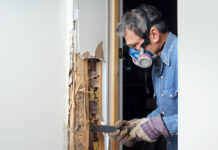
By Justin Becker
The recent record-breaking cold snap seen across the nation provided an immediate winter stress test for many facility managers and their HVAC systems.
As many facility managers likely experienced firsthand during the last several weeks or in previous periods of severe winter weather, freezing temperatures coupled with snow and ice can wreak havoc on HVAC systems. Often, one small failure can easily snowball into a costly emergency, especially when temperatures dip below freezing.
While winter weather can be unpredictable, avoiding complete HVAC shutdowns and extensive financial burdens is possible through adopting a premium preventive maintenance (PM) plan. A premium PM plan is customized to meet your building’s needs, as opposed to the typical belt-and-filter change PM plan that can often miss issues with your specific HVAC setup.
Most importantly, a customized PM plan can help avoid corrective repairs that can often cost two to four times more on average than total PM costs. In addition, supply chain issues mean that parts are not easily available with delays spanning weeks up to two years. Upgrading to a facility-specific PM plan is the best way to stay proactive and obtain the parts you need before they completely fail and threaten to take your whole system down.
Buildings practicing proper HVAC preventive maintenance can also reap serious cost and energy-saving benefits, using up to 30% less energy than those with systems that are allowed to deteriorate.
Preventing Problems Before They Start
For those who do not have a premium PM plan in place, there are five key warning signs that all facility managers should be aware of that can help identify potential HVAC problems before it’s too late:
1. Odd sounds coming from the vents: “It always sounds like that” is not how you want to describe your HVAC system. Sounds such as rumbling, clanging, screeching, and grinding can indicate a mechanical failure or issue within the system.
2. Uneven heating: If certain rooms or areas within your facility are cooler than they should be, there could be an issue with the heater or the way heat is distributed throughout a facility due to unbalanced or misbalanced hydronic systems.
3. Weird odors: Strange odors coming from vents could be caused by ductwork issues or a larger issue within a facility’s HVAC system. If the smell has a sharp sulfur smell, it could mean the system’s motor is running too hot and is nearly burning out.
4. Short cycling: A modern HVAC system shouldn’t cycle on and off every 15 minutes. If this is happening at your facility, it could be caused by many possible issues that can eventually lead to a system failure.
5. High utility bills: While costs across the board are rising for facility managers, a significant increase in your energy bill when winter sets in may be a warning sign that there is trouble within your heating system.
While winter is already upon us, it’s not too late to set your HVAC system up for success in 2023. If you’re experiencing any of these telltale signs of HVAC malfunction, it may be time to consider upgrading to a customized preventive maintenance plan.
It’s important to remember that all HVAC contractors are not created equally. It’s vital that you select a service contractor with decades of experience working with commercial clients as they will have the technical expertise and the tools needed to get to the root cause of any potential problems and craft solutions to avoid costly breakdowns this winter.
Becker is a Sales and Marketing Specialist with New Jersey-based Mechanical Service Corporation (MSC), one of the region’s most trusted, technically-proficient and sought-after HVAC diagnostic experts and service providers. In addition to leading MSC’s sales and marketing initiatives, Becker has over 15 years of experience as an HVAC service technician and project manager.
















![[VIDEO] Collect Asset Data at the Speed of Walking a Building](https://facilityexecutive.com/wp-content/uploads/2024/02/maxresdefault-324x160.jpg)